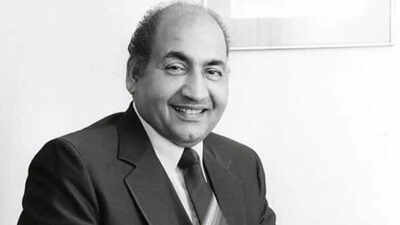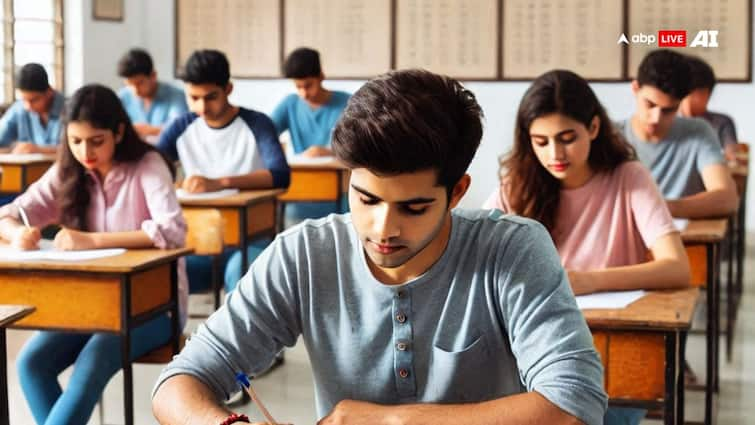Born in 1924 in a small village near Amritsar, Mohammed Rafi’s first spark of inspiration came from a travelling fakir whose songs he would quietly follow through the streets. Though he later trained under a maestro, his passion for music was met with resistance at home. Rafi’s conservative father disapproved of singing as a profession, and the young boy grew up torn between his love for music and his family’s strict values. Even after becoming one of India’s most celebrated playback singers, Rafi often wondered if his work was sinful. Determined to keep his children away from the industry, he sent them to London to pursue different paths. His son, Shahid Rafi, has often spoken about his father’s childhood in Lahore and about his marriage to—and eventual separation from—his cousin, Bashira.
A story destined for the cinema
In a YouTube interview with Vickey Lalwani, Shahid revealed that he is working on a biopic about his father with director Umesh Shukla. The film, he said, will trace Mohammed Rafi’s journey from childhood to his final days. “I want to show how he started singing from the age of eight or nine, how he was inspired by a fakir who would walk through their neighborhood in Lahore, playing a simple string instrument. My father would follow him around silently, taking in his voice… The fakir asked him to sing and was impressed by his talent. He blessed my father and said that he would go far.” Rafi himself recalled a similar memory in a 1977 BBC Hindi interview:“I used to live in a small village near Amritsar, and a fakir used to visit often. He would sing for money. I used to love his voice, and I would follow him around for long distances. I developed a love for singing after listening to that fakir.”
A family divided over music
Shahid remembered how the household remained split over young Rafi’s dreams. “My grandfather was dead against the idea of him singing. He would say, ‘Marasiyon ka kaam nahi hai humara. Yeh galat kaam hai, yeh sab hum nahi karte (We are not singers; this is wrong).’ Our grandmother was very encouraging of him, though. She said, ‘Tu fikar mat kar, main sambhal lungi (Don’t worry, I’ll take care of it).’… He cooled down after he heard my father’s voice in a Punjabi film, and then he himself said, ‘Sangeet ki jeet hui hai (In the end, music won).’”
Childhood in Lahore and the partition’s pain
When the family moved to Lahore, Rafi’s father set up a barbershop where the young boy often helped, trimming beards and cutting hair. But fate had bigger plans. Spotted by someone from a Lahore radio station, he was encouraged to try his luck in Bombay. By then, he had sung in a few pre-Partition Punjabi films and in 1945 recorded his first Hindi film song. Partition, however, shook his personal life. While Rafi stayed in India to pursue his career, his wife, Bashira, refused to leave Lahore. Shahid recalled, “She was related to Dad. She was his cousin. She didn’t want to come to India. Dad asked her to come and stay with him, but she refused. Dad said, “Okay then, give me my son.” Rafi brought his eldest son with him, and Shahid later revealed he didn’t even know until much later that his elder brother wasn’t his biological mother’s child. “My parents never treated him any differently. In fact, my mother seemed to love him more. He was always one of us, seven brothers,” he said.
Bombay dreams and a reluctant father’s consent
In his final interview with Star & Style, given just weeks before his passing, Rafi reflected on his early struggles. “I am a native of Lahore. I belong to a very orthodox and conservative Muslim family. I used to sing at friends’ places when I was only 15. During one such occasion, Nasir Khan, one of the top producer-actors at that time, spotted me and offered to take me to Bombay and groom me as a singer in films… My father had refused the offer point-blank… When Nasir Khan persisted with the offer, my elder brother convinced my Abaajaan to let me go to Bombay. With great reluctance, my dad agreed to my pursuing a career as a singer in films.”
Memories of Saigal Saab and Rs 75 a song
Reflecting on those years, Rafi recalled, “Filmmaking wasn’t merely a business proposition during those days when institutions reigned supreme and freelancing hadn’t become popular… Believe it or not, I used to be paid a meager amount of Rs 75 in those days for one song!” He also remembered with warmth the encouragement of senior singers. “When I entered the line, there were, of course, popular singers like Saigal saab (KL Saigal), GM Durrani, and Khan Mastan… Instead of considering me another competitor, they encouraged me to give my best. In fact, I remember the first time I met Saigal Saab at Lahore… The mike had failed at the last minute. While it was being set right, I was asked to keep the audience engaged by singing a couple of songs. I was only 15 then… Saigal Saab blessed me that day and predicted that a day would come when I would be a sought-after singer.”
A voice that lives forever
Mohammed Rafi passed away in 1980 at the age of 55. Decades later, his voice continues to echo across generations, not just as music but as a memory of perseverance, humility, and divine talent. Go to Source




